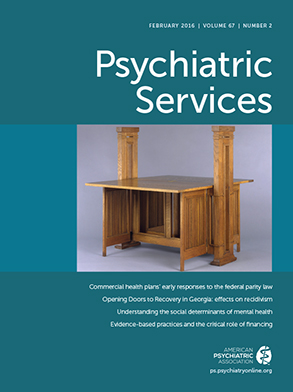Evidence-based practice (EBP) began as an approach to medicine and has expanded into other fields over the past ten years. EBP is “the conscientious, explicit and judicious use of current best evidence in making decisions about the care of the individual patient,” according to an often-cited definition (
1,
2).
Thomas O’Hare’s book, Evidence-Based Practices for Social Workers, in its second edition, is geared toward informing and persuading social workers about the efficacy of EBP. The first part of the book explains basic principles and methodology: EBP involves informed assessment, intervention strategies based on research outcomes, and ongoing evaluation of clients’ progress. Assessments drive treatment goals and planning, whereas evaluation must be regularly considered. For social workers, intervention and evaluation must be an integrated and continuing process.
O’Hare, an associate professor at Boston College in the School of Social Work, shows the need to apply a multidimensional functional-systemic assessment; that means considering psychosocial issues, risk and protective factors, cultural issues that may affect the client, and research outcomes from the behavioral and social sciences. The clinical evaluation of clients’ progress should be based on reliable and valid results. O’Hare identifies specific instruments for measuring outcome, such as the Beck Depression Inventory, and offers several scales in the appendices. Social workers have always used empathy, engagement, and critical thinking in their work. EBP combines these central elements of social work with proven interventions for effective treatment; these interventions include supportive and facilitative skills, cognitive-behavioral skills, and case management skills.
The second part of the book is dedicated to showing social workers how to apply EBP to adult disorders, based on the DSM-5 classifications, including schizophrenia spectrum disorders; depressive and bipolar disorders; substance use disorders; anxiety disorders, including panic disorder and agoraphobia; obsessive-compulsive disorder; posttraumatic stress disorder; and antisocial and borderline personality disorders. For each diagnosis, there is a brief overview of the disorder and research on various aspects of the illness. There are theories about the illness, components to include in a comprehensive multidimensional functional-systems assessment, and a selection of effective interventions for the disorder. Along with presentation of each disorder is a case study that includes treatment interventions. In this way, the second part of the book establishes a framework and method to use EBP in the treatment approach for specific clients.
The third part of the book follows the same organization with Problems and Disorders of Couples and With Children and Families. This section includes chapters on distressed couples, anxiety and depression among children and adolescents, conduct disorder, and attention-deficit hyperactivity disorder of children and adolescents. O’Hare also has chapters on child abuse and neglect, eating disorders, substance abuse, and co-occurring problems of adolescents and young adults. Together, the second and third parts illustrate for the clinical social worker how to use EBP to treat clients.
Evidence-Based Practices for Social Workers is filled with useful and up-to-date information. It would be valuable as a reference, a guide, or a resource to help social workers access the tools for best practices. Social workers have always sought to improve the psychosocial functioning of individuals and families. As clinicians, social workers should embrace sound treatment research in their practices; doing so is important for the field of social work and for the well-being of clients. This book should be easily accessible on the bookshelf of every clinical social worker.

